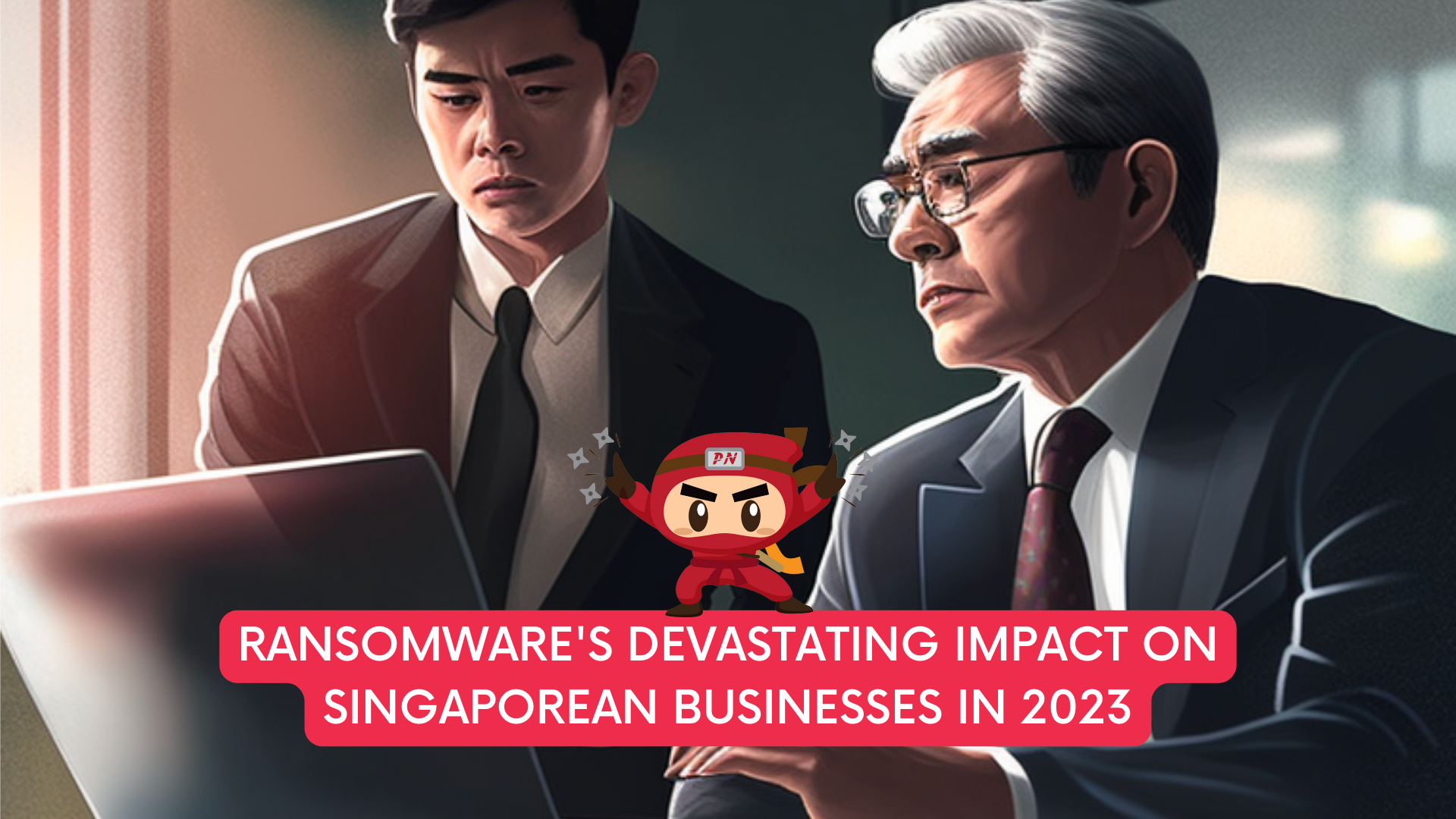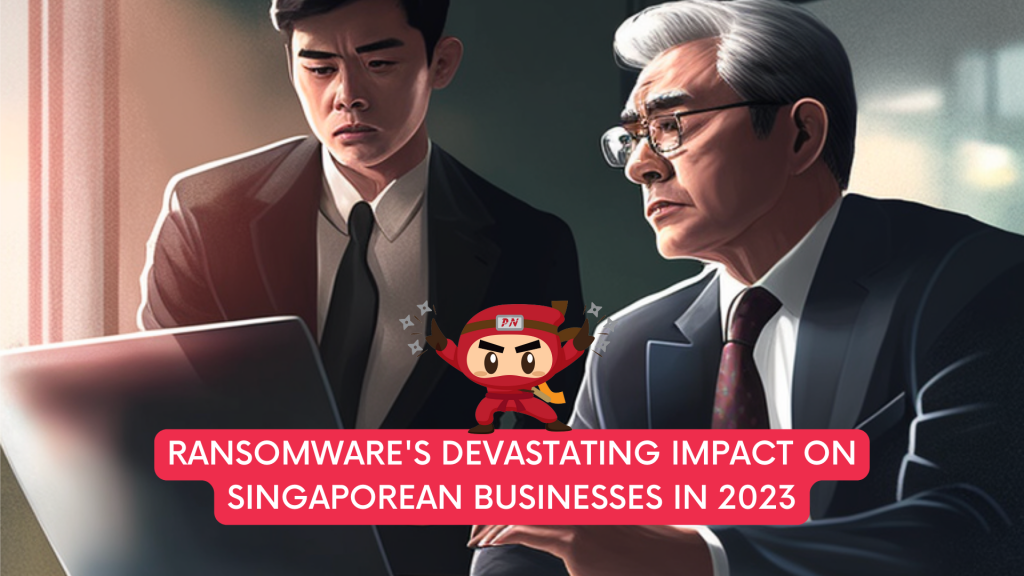KEEP IN TOUCH
Subscribe to our mailing list to get free tips on Data Protection and Cybersecurity updates weekly!







In this digital era where businesses heavily rely on technology and interconnected systems, cybersecurity threats continue to evolve and pose significant challenges. One such menace that has gained notoriety in recent years is ransomware. This malicious software infiltrates computer networks, encrypts essential data, and holds it hostage until a ransom is paid.
In 2023, Singaporean businesses are facing an unprecedented wave of ransomware attacks, crippling operations and leaving companies in a state of chaos. This article delves into the current landscape, examining the impact of ransomware on Singaporean businesses and shedding light on preventive measures to mitigate these threats.
Since we’ve stepped in 2023, ransomware attacks have reached new heights, targeting businesses of all sizes and sectors across Singapore. The threat actors behind these attacks employ advanced techniques, exploiting vulnerabilities in computer networks and using sophisticated social engineering tactics to gain unauthorised access. Once infiltrated, ransomware quickly spreads throughout the system, encrypting crucial data and rendering it inaccessible to the organisation. The attackers then demand hefty ransoms in cryptocurrencies, leveraging the anonymity and difficulty in tracking such transactions.
The consequences of these attacks are severe and far-reaching. Singaporean businesses, regardless of their scale, face significant financial losses due to ransom payments, system downtime, and recovery efforts. Additionally, the damage to a company’s reputation and customer trust can be irreparable, leading to long-term consequences for its sustainability. In 2023, ransomware attacks have become more targeted, with threat actors increasingly focusing on sectors that are critical to Singapore’s economy, such as finance, healthcare, and logistics. The impact of these attacks extends beyond the individual businesses affected, posing a broader threat to Singapore’s overall cybersecurity landscape and economic stability.

To combat the growing threat of ransomware attacks, Singaporean businesses must adopt proactive measures to safeguard their digital infrastructure. Prevention is key, and organisations should prioritise implementing robust cybersecurity measures such as regular data backups, network segmentation, and multifactor authentication, which can all be aided with the help of a DPO.
Moreover, investing in advanced threat detection and response systems can help identify and mitigate potential ransomware attacks in their early stages, preventing widespread damage.
Education and training also play a vital role in defending against ransomware. Employees should receive comprehensive cybersecurity awareness programs to recognize phishing attempts, social engineering techniques, and suspicious activities that could lead to a ransomware attack. By cultivating a culture of cybersecurity consciousness, organisations can significantly reduce the likelihood of successful attacks.
Furthermore, collaboration between the public and private sectors is crucial in combating ransomware. Singaporean businesses should actively participate in information sharing initiatives and engage with government agencies and industry-specific cybersecurity organisations. Through collective efforts, valuable insights can be gained, enabling the development of stronger defence mechanisms and a more resilient cybersecurity ecosystem.
The year 2023 has witnessed a surge in ransomware attacks, posing a severe threat to Singaporean businesses. The devastating impact on financial stability, operational continuity, and reputation cannot be ignored. By taking proactive measures, prioritising cybersecurity investments, and fostering a culture of awareness, Singaporean businesses can enhance their resilience against ransomware attacks, safeguarding their operations and contributing to a secure digital landscape in the nation.

Your appointed DPO can work with you on your PDPA compliance, ensuring that there will be policies in place to make sure that the handling of personal data is PDPA compliant. This includes promptly responding to the PDPC with their queries to expedite the investigations and prevent a harsher penalty from the Commission.
A Data Protection Officer (DPO) oversees data protection responsibilities and ensures that organisations comply with the Personal Data Protection Act (PDPA). Furthermore, every Organization’s DPO should be able to curb any instances of PDPA noncompliance as it is the officer responsible for maintaining the positive posture of an organisation’s cybersecurity.
DPOs complement organisations’ efforts to ensure that the organisation’s methods of collecting personal data comply with the PDPA. It also ensures that policies are set in place to make sure that there will be no instances of data breaches in the future.
Don’t wait any longer to ensure your organisation is PDPA compliant. Take our free 3-minute PDPA Compliance Self-audit checklist now, the same “secret weapon” used by our clients to keep them on track. Upon completion, we will send you the results so you can take the necessary action to protect your customers’ data. Complete the free assessment checklist today and take the first step towards protecting your customers’ personal data.